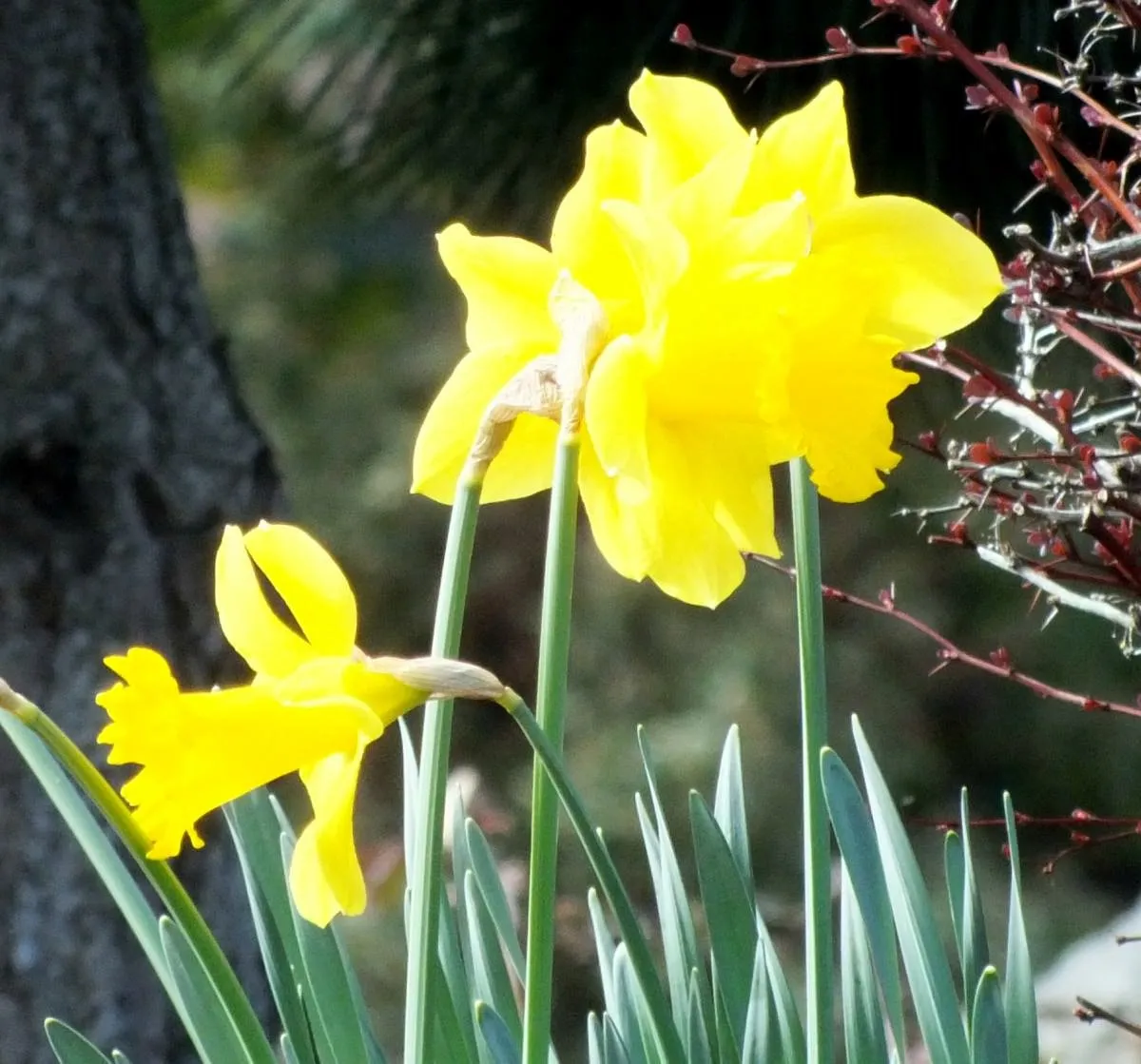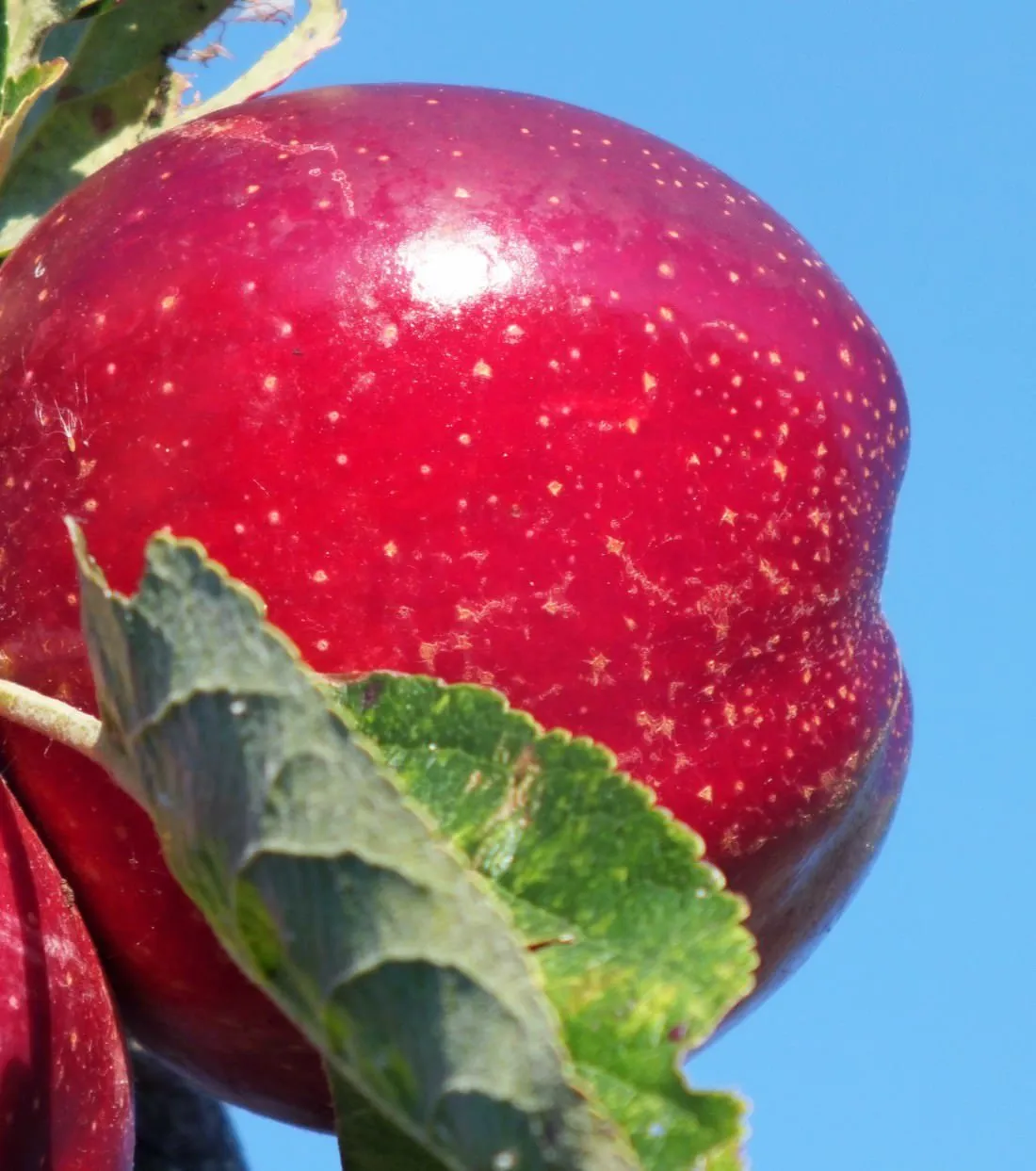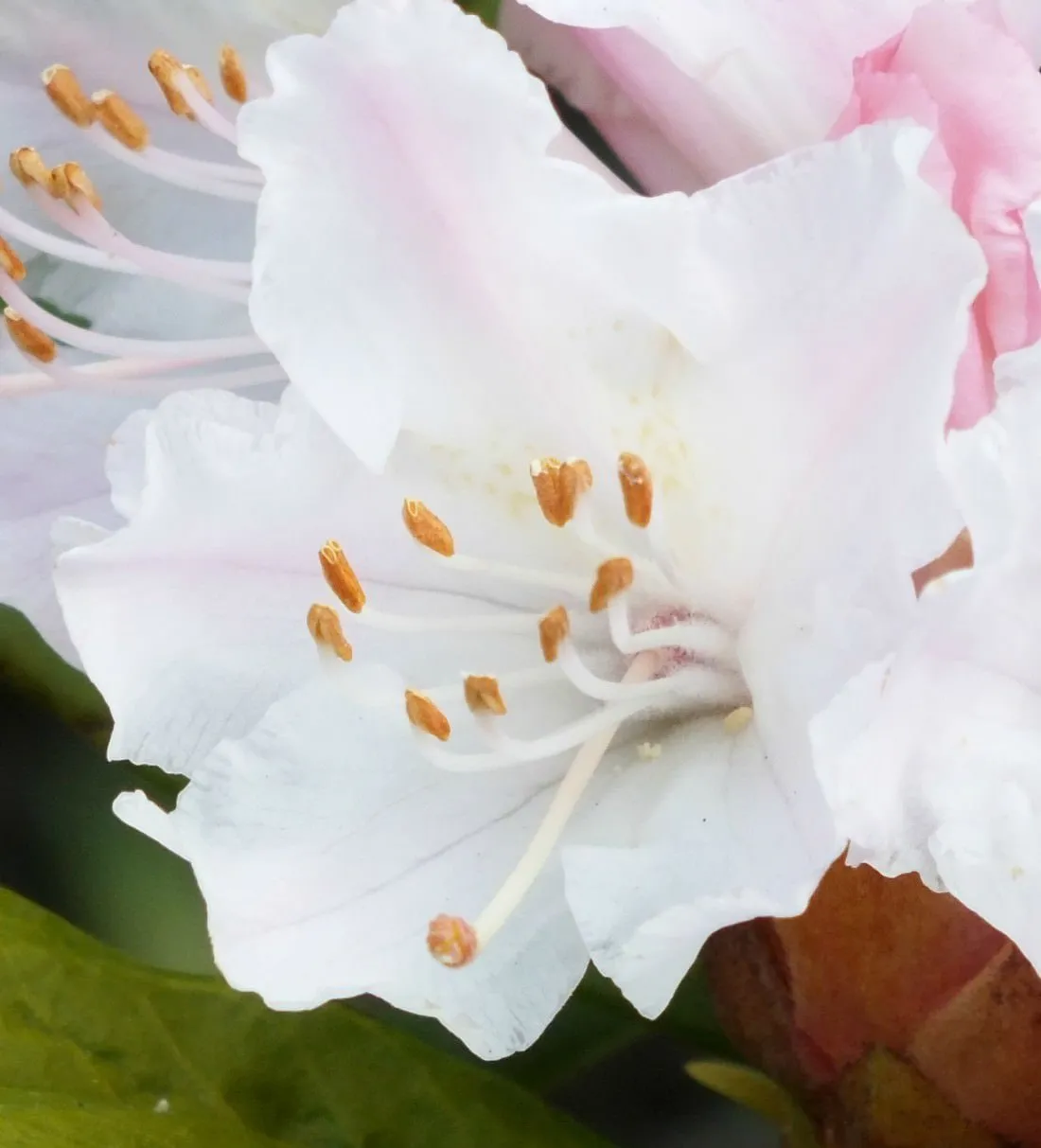"Don't be so Judgmental!"
It is one of those things we may hear from time to time, and it may even be something we say to others, ourselves.

Daffodils
These days, there even seems to be growing societal pressure towards "not having an opinion about ANYthing, lest it be interpreted as judgmental." It's that whole "Political Correctness" thing.
There's no doubt that as soon as we start talking about a "they" who is apart from "us" we are making a judgment of sorts. And when we start using words like "should" when talking about "them" we are making judgments.
But are simple factual observations actually judgments?
And then There's Discernment
Some would argue that "discernment" is merely a fancy intellectual word for "judgment," but is it really?

Apple and blue sky
Is this ever-tightening circle of being so incredibly open-minded really doing anyone any favors? Certainly, some social mindfulness is an appropriate and good thing... but I always end up thinking of that old truism: "Be open-minded, but not SO open-minded that your brains fall out!"
But let's look at discernment again.
Being discerning merely means that you hold preferences, and stand true to your own values... but do so without making any requirements of others that they should necessarily (a) agree with those values and (b) feel pressured to adopt those values.
I raise this as a concern simply because we live in a world where merely standing by your beliefs increasingly seems to get you labeled as a "judgmental bigot."
A world in which a statement like "Well, I am not personally in agreement with that, but to each their own" could be regarded as... evil, somehow.
Are We All Becoming Mindless Idiots?
Our daughter (26) is visiting this weekend. She's an early riser, so we were sitting out on the back porch having coffee and talking about life.

Nasturtium in the wild...
Among the topics raised were this whole issue of being seen as "judgmental," simply because you hold an opinion about something, along with the issues of ignorance, "magical" thinking and willful stupidity.
The conversation arose because of a specific situation in which she had been called a "Judgmental Cee-U-Next-Tuesday" for expressing her disgust with someone who (a) refused to acknowledge that a (potentially dangerous) problem actually IS a problem (aka "magical thinking"), leading to (b) consequences affecting many people, which they then refused to accept as having anything to do with them (aka "willful ignorance") leading to (c) extensive whining and hand wringing over how "unfair" life is, and how they were bring "judged."
I empathized greatly with her... and we worked through some possibilities.
The whole conversation made me feel like a strange relic because I do — to a great extent — inhabit a reality where "cause ==> effect," rather than this growing trend that feels more like "I get to do whatever I want, and the outcome has to be what I want in my imagination, not what reality dictates in this situation... and if something goes wrong, NOBODY gets to say anything!"
New Age Healing, Self-Help and all that Good Stuff
Of course, I am quite familiar with the whole "Magical Thinking" approach to life, as Mrs. Denmarkguy and I have both been part of the "alternative" healing, metaphysics and spiritual field for 30+ years.

Honeysuckle
But that's really not a "free pass" to lose touch with what is real.
See that simple 12-word sentence? In some contexts, that could be seen as both judgmental and intolerant, simply on account of my not embracing something I don't happen to believe in.
Of course, I recognize that I am merely offering my perspective and perceptions on a situation, based on my own set of experiences.
These perceptions — and observations of the reality I experience unfolding around me — tell me that so much of all this "political correctness" and "open-mindedness" is little more than a thinly veiled smoke screen around a deeper desire by many people to abdicate personal accountability for having their opinions. If we "make everything OK," I never have to deal with the pain of being disagreed with...
But the New Age people are merely a tiny part of the population.
The Strange Case of Donald Trump
It's no secret that a LOT of people have a profound dislike of Donald Trump.

Spring Rhododendron
However — once we get past the pervasive cloud of partisan political bullshit — I have a feeling that far more people are offended by Trump's delivery of his message, than the content of it.
I'd even venture that he makes zero headway with the "liberal" end of the spectrum mostly because he has the social graces of a rhinoceros trapped in a hall of mirrors. It's actually kind of funny, because quite a few of my right-wing friends agree that the guy is a social buffoon, even while cheering him on.
Which leads me to consider the fact that President Trump is "possible" — at least in part — in today's world (which often takes some pride in being "evolved" and "civilized") because many have grown disgusted with not being able to have an opinion lest they be labeled "judgmental bigots."
Although Donald Trump has zero "filters," many cheer him on because he serves as a sort of proxy for their own lost opinions.
How Did We GET Here?
The more I think about it, the more it feels like we can lay a good bit of the blame at the foot of social media. In fact, we might even call it "The Facebook Effect."

A small weed... with pretty purple flowers
Let's consider this: What do we see on Facebook (I'm using Facebook as a metaphor for most social media)?
We see a few extremely outspoken people ("trolls?") who say whatever they want, whenever they want — regardless of whether it's situationally appropriate — and could care less what anyone else thinks. And, in fact, they often bully and/or ignore those who disagree with them, frequently dismissing them as "idiots."
That's what we notice. But what about the vast majority of users?
If you think about it, most people say "nice" things and share kitten/baby pictures that will get them some likes, while a large number of people live in constant fear of being "unfriended" as a result of something they shared or posted in a comment.
The daughter and I talked a bit about this.
She admitted that she has occasionally felt "hurt" — to the point of almost having an emotional meltdown — when someone unfriended her.
Are You Being SERIOUS???
At 26, our daughter is an Internet "native."
She has never known a world in which there was not an Internet, and so has never known a world in which the attendant "netiquette" wasn't part of her reality.

Blooming salmonberry
It also means she has never been part of a world in which a significant part of the population didn't derive at least a portion of their self-identity from their "public persona."
Yes, I know, people have always had a "public" and "private" self, but it's only in the past 20-odd years that our "public selves" were out there in the world, for daily public consumption. Along with that, the effort to keep that public image "polished" and presented a certain way.
Truthfully, it began with MySpace in 2003. MySpace appealed to the 13-21 age group; the age at which we — as humans — are busy trying to establish our personal identity. And because we often have fragile self-esteem during that part of our lives, early days of MySpace heavily revolved around "accumulating friends." Your "worth" was deeply invested in your friends count... and building it depended materially on being nice/cute/sweet/funny... and NOT saying controversial things that might upset people and cause them to UN-friend you.
See where I am going with this?
If you were "all inclusive," you'd build your friends list faster... which meant not saying anything that could be construed as "mean."
If you were 13-21 in 2003, that makes you 28-36 today... a pretty close match for the young political activist and Social Justice Warrior of 2018.
Closing the Circle
As a student of the Human Condition, I tend to be more interested in WHY people do what they do than WHAT they actually do. And why they follow the trends they do.

Calendula by the fence
In simple terms, I wonder if the "wishy-washyness" of so many people is simply related to their fear of being unfriended.
Our lives have become so "public." It used to be that if you had a fight with your neighbor over politics, you went home, drank some beers, made good a week later and life goes on. And nobody was the wiser. Now? You get PUBLICLY unfriended and it's a big deal and "everybody" knows about it. On some level, we admire the Trumps of the world, but we don't want to BE them, because we don't want to stand in the crossfire.
So we accept more things, without question. We stick our heads in the sand. We abdicate our opinions. We practice willful ignorance. And life gets run by extremists.
Yes, these are broad sweeping generalizations, but it's still something to think about.
What do YOU think? How do you see the "mood" of the world changing? Are people m ore afraid to have opinions? Do you thunk that "abdicating our opinions" means the world is more likely to be run by outspoken extremists? Do you think the "Facebook Effect" is a real thing, influencing people? Leave a comment-- share your experiences-- be part of the conversation!
 created by @zord189
created by @zord189(As usual, all text and images by the author, unless otherwise credited. This is original content, created expressly for Steemit)
Created at 180407 14:49 PDT